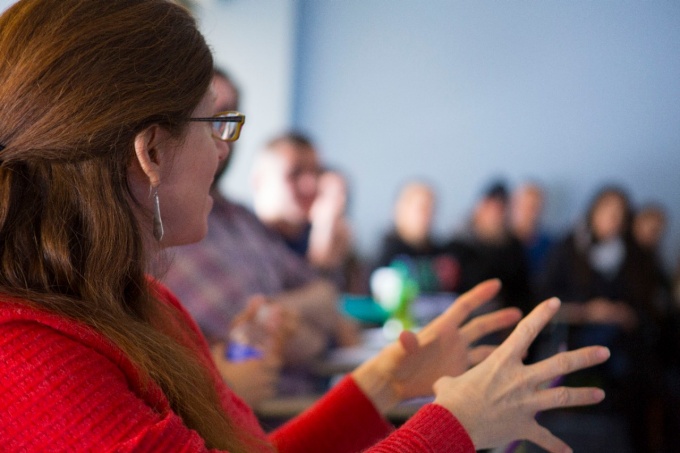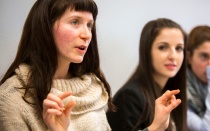Graduate Overview

The Department of Romance Languages and Literatures takes its responsibility to graduate students seriously, offering the intellectual guidance and access to faculty that distinguish our graduate experience from other programs.
Graduate students in the Department of Romance Languages and Literatures (RLL) are prepared to participate in critical discussions of the discipline, are able to articulate major shifts and trends in the evolution of those discussions and can express their own position within them. Our graduates acquire competence in theoretical approaches and methodologies that inform their own research, and obtain familiarity with a diversity of critical approaches that allow them to engage meaningfully with the scholarship of colleagues in neighboring disciplines.
Degree Options
Our Faculty
Here, graduate faculty members cooperate to nurture the scholarly interests of students, providing both a strong breadth of knowledge in the discipline and the critical tools to explore the chosen subfield in creative and meaningful ways. We engage, challenge and mentor our students to become independent scholars who have the critical thinking skills and knowledge to be well prepared for careers beyond their degree.
Our faculty are committed to a pan-Romance perspective that underscores the connections between the sections of the department and their respective degree programs. Faculty pursue their research, and graduate students prepare their MA projects and PhD dissertations, in an environment where there is an enthusiastic dedication to the importance of all of the Romance Languages, to the geographical areas where they are spoken, and to all of the Hispanic and Francophone cultures.
Cross-Disciplinary Collaboration
The Department of Romance Languages and Literatures is one of the most collaborative at UB, fostering a climate in which a vast array of theoretical and disciplinary interests are at home. Our faculty and students regularly interact with a large cross-section of UB’s departments, institutes and centers, including:
Campus Engagement
Among the most outward-looking, dynamic and engaged scholars on campus, or faculty and graduate students can be seen everywhere: organizing colloquia and conferences, hosting theatrical performances and film series, chatting with students at language exchange tables and participating in research groups, including the Early Modern Reading Group, the Ecocritical Studies Research Workshop and the Feminist Research Alliance.


